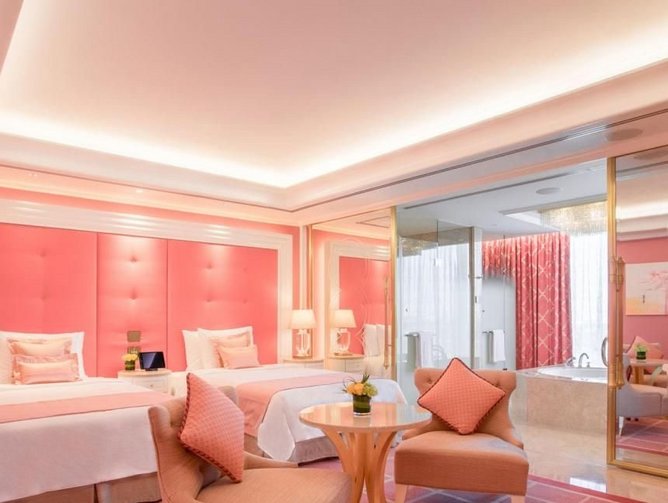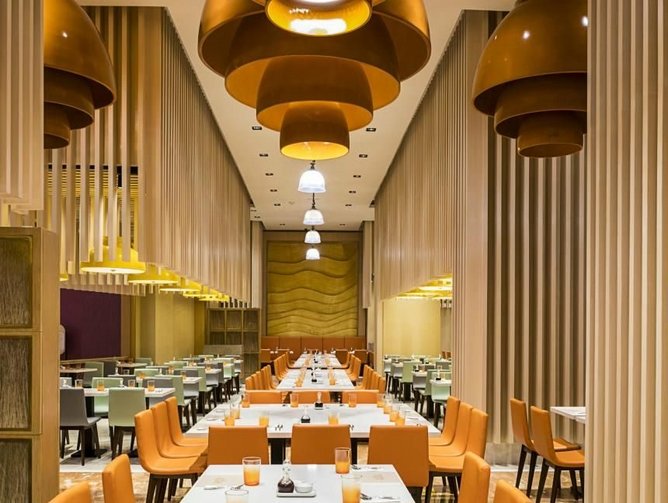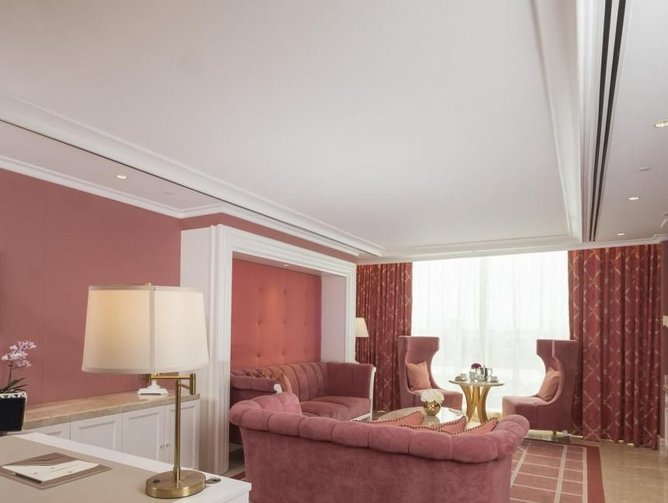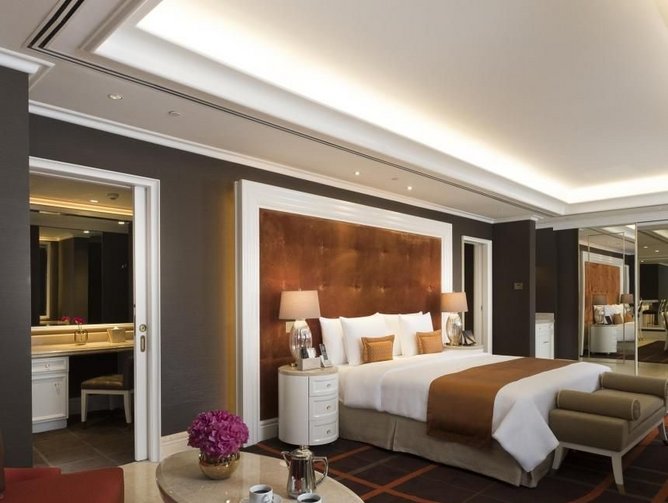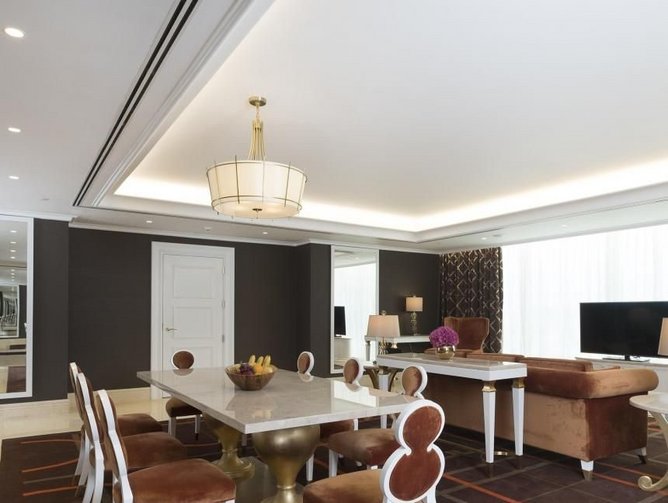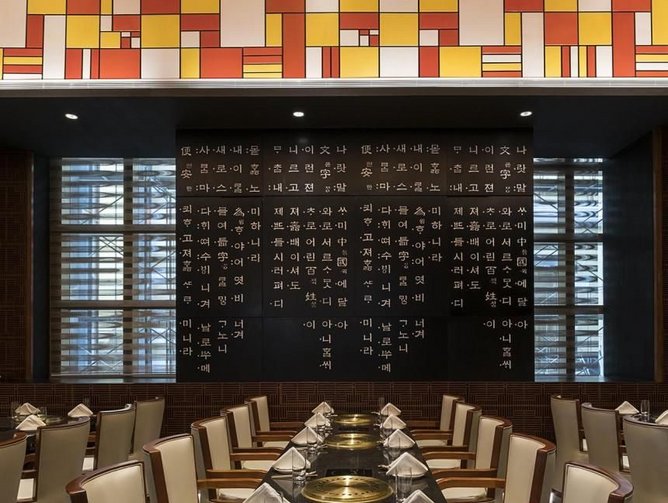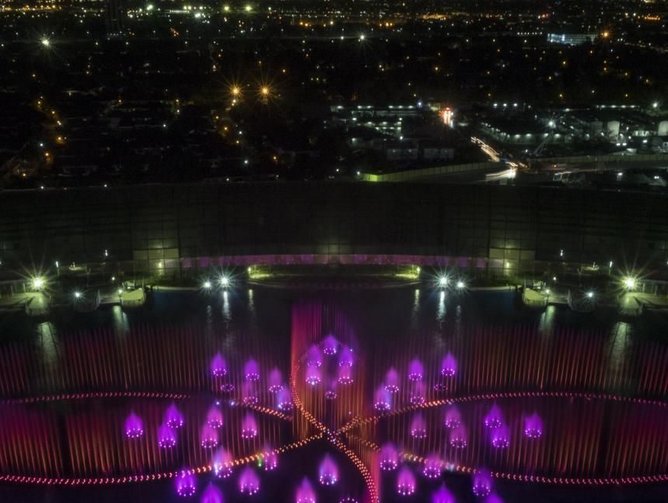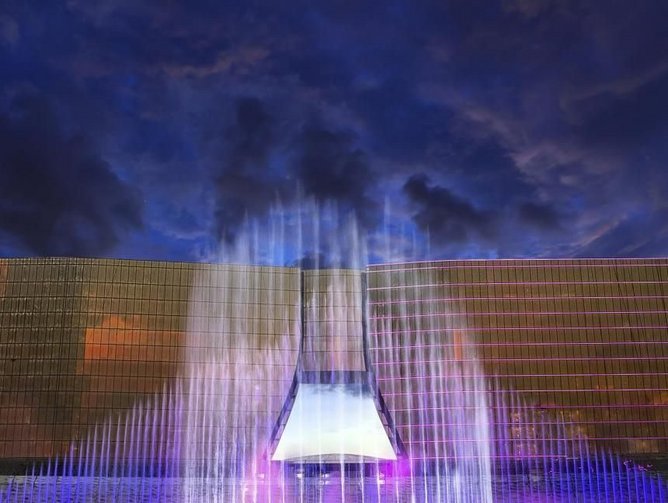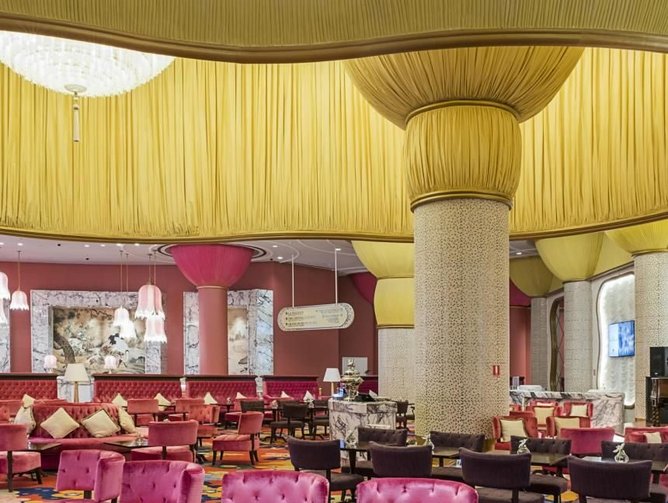Okada Manila is a US$2.4bn development that is the largest and most expensive property in Entertainment City, in Manila, Philippines. Set in 44 hectares of prime land, it is positioned as an integrated resort with features that cater to different kinds of people, yet it mainly stands for one thing: entertainment. While it has a casino and gaming area— the largest in the country in terms of size and gaming options—it has a rich array of unique and world-class amenities that truly spoil its guests with choices on how they would like to spend their time, from relaxation to shopping to dining and other kinds of entertainment.
Its most iconic feature is the US$30mn The Fountain, which brings select music to life through a fantastic choreography of light and water. Aimed to become Manila’s main tourism icon, this fountain is designed and developed by WET, the same team behind the world’s most popular water features in Las Vegas and Dubai. Okada Manila is also home to the country’s first-ever indoor beach club and nightclub, Cove Manila. Enclosed in a glass dome, 100m in diameter and 30m in height, Cove Manila features artificial white sand and can host up to 3,000 guests.
Okada Manila is being built against a backdrop of how the Philippines has become a hotbed for investment and one of the fastest growing economies in the world. The government’s six-year “Build Build Build” construction and infrastructure initiative is set to further attract new and upcoming services here, such as the launch of integrated resorts that contain hotels, retail outlets, spa and leisure facilities, traditional gaming services and much more. Moreover, developers are now catering to an increased consumer desire to seek a complete experience, rather than spend money on one area of entertainment.
“The different kinds of tourists, such as families, are not going to be encouraged to come here if there is no variety of exciting and worthwhile things for them to do,” explains Lisanne Bogle, Vice President of Supply Chain for Okada Manila. “That’s why integrated resorts give an all-encompassing answer: they provide something for everyone.
“There are four integrated resorts in Manila: Resorts World, City of Dreams, Solaire and Okada. Traditionally, gaming has been popular with tourists from various Asian countries and Las Vegas used to be the draw. With the advent of gaming in Macau and southeast Asia, the number of tourists to these destinations has increased, especially VIP guests who provide a strong backbone to the entire industry of entertainment and travel.
“The region’s economy has grown and expanded in the last several years, which also means an increase in disposable income. Citizens from many countries are able to travel more and explore many sought-after destinations.”
Changing attitudes
Operated by Universal Entertainment Corporation subsidiary Tiger Resort, Leisure and Entertainment Inc., Okada Manila houses a number of diverse food and beverage outlets, retail, leisure, sports and spa facilities and, of course, traditional gaming services which are open 24-7. Although it is mostly complete, there is still some ongoing construction, and Okada Manila’s procurement team faces a number of challenges in its daily operations. Its vast team is split into three areas to cater for these demands: business processes, procurement and strategic sourcing, and warehouse, receiving and logistics.
In order to ensure competency in all areas of the business, there is an increased need for versatility in both thought and action, as Bogle explains: “All members of the procurement team need to understand each step in the procure to pay process and the impact of logistics; whether it is the customs clearance process, the specific items that require paperwork for Philippine Amusement and Gaming Corporation (PAGCOR) approval and also those items that have been approved by the Philippine Economic Zone Authority (PEZA) and what additional documentation may be needed once the order has been placed. There is a need for speed, urgency and a lot of communication to ensure shipments are not delayed. A small misstep could result in a delay in handover of an area or a direct offer program not meeting the expectations of the guests.”
Thinking outside the box
“We’ve been gradually adding more real estate to our operations, so we're in a very hybrid situation,” Bogle continues. “Not only are we processing the fit out requirements for the hotel and restaurants, but we are managing the daily operational requirements for the existing operations.”
With such complexity, ‘thinking outside of the box’ has become the norm for Okada Manila. When ordinary software lacked the adaptability required to satisfy its everyday needs, the team looked at alternative solutions. The implementation of hospitality software RedRock has become essential within its procure-to-pay solution, which also manages Okada Manila’s growing inventory and is supported by Microsoft Dynamics AX for the financials.
With a campus of this size, efficiency is important and Okada Manila maintains onsite warehousing for over five hundred items, including operating supplies and also food and beverage items. The warehouse team manages over 500 SKUs, many of which have different weights and expiration dates. “We're dealing with many products that do not have a fixed case weight,” Bogle says. “As these cases go into inventory, we need to be able to record the actual incoming weights, the costs and subsequently the average inventory cost to correctly and accurately calculate the food costs and the recipes.
“When we order beef, it doesn't necessarily come in a fixed case weight, but in an average case weight. However, we get charged by the kilogram, not by the case. You may say that a case is an average of 25kg, but there are times we receive 24.7kg, then the next time we receive 25.3 kg. We have to have a system that manages the ability to calculate the true cost, and also to manage our inventory based on what we call catch weight variances,” she adds.
“Most large ERP solutions have not been successful in providing a solution for this specific requirement. Additionally, we now utilise a new bolt-on solution to RedRock that has allowed us to increase the efficiency of our supplier registration and accreditation via an electronic supplier portal. Initially, the use of that portal is for our vendors to undergo vendor registration and accreditation. Vendors are provided with a username and password and a link to access the portal. They complete an online application providing us with required information on their company, and they upload pertinent licenses, permits, insurance documents and financials. The business process team will then verify for authenticity, work with risk management on the financial assessments and conduct background investigations. This online portal has saved us a significant amount of time reducing the process from nearly three weeks to a matter of days. Then, the second part of this solution will allow us to do electronic RFIs, RFQs and RFPs, as it actually ties in with RedRock. All processes within one framework reducing the volume of excel spreadsheets and tender documents and paper files.”
“Identifying the right software solution is never an easy task; ensuring it meets the operations’ requirements is key. Technology should work for us, and not the other way around.”
Reducing product costs
As more restaurants open, food and beverage requirements increase dramatically. In addition to preparing meals for more than six thousand team members on a daily basis, each kitchen under Okada Manila prepares its own menus for its restaurants. The number of ingredients slowly grows and the specifications become varied. Okada Manila’s Supply Chain is now tasked with not only sourcing all of these different products but also managing costs. Optimisation of product specification is an approach that has led the company to dive deep into all specifications and work with the F&B department in discovering synergy of product across multiple outlets where possible. This has consequently become vital to restaurant operations to ensure food costs are controlled without endangering the quality and uniqueness of each menu. “We may use pork belly in multiple restaurants, and each chef is likely to ask for a different specification – bone-in, skin-on, skin-off or boneless or a combination,” Bogle says. “By standardising the specification, we are able to ensure that we have the right volume to leverage negotiations with suppliers.
“Cost reductions come in many forms, however, we can only take so much cost out of the product, so we get creative in looking at different ways of procuring products. Maybe we reduce the number of deliveries; the vendor saves on freight and logistics cost and we can then share those savings. It's really thinking outside the box and collaborating with vendors; understanding how they do business, how we do business, and how we can work to eliminate some of that excess cost that is added into the cost of goods.”
Systematic processes
The integrated resort sector in the Philippines is still in its infancy and that means that experienced resources are sometimes limited. Training is key, and finding the right individuals with the right attitude and potential is the starting point at Okada Manila. As a result, it continues to be committed to undertaking an ongoing talent development drive and deliver extensive training across its operations.
“We spend a lot of time working with our teams, whether it be on an individual basis or whether it be in a group setting, to really get them up to speed,” Bogle explains. “If you clarify why things are done, you then get the support which in turn brings a better result.”
In addition to training, ensuring transparency is something that Bogle stresses is of utmost importance within Okada Manila’s procurement functions. Transparency of vendor selection, the tender process, the award are all non-negotiable. Processes and controls are also vitally important to the success of Supply Chain within the organisation. “We educate our BUs on our SOPs, we are constantly evaluating our SOPs as the business changes to ensure that we are covering all angles,” Bogle notes. “We do not want to strangle the operation, but we need to ensure that all processes are adhered to. Accountability, visibility and responsibility are buzzwords for the supply chain team. Strict regulations have also ensured that compliancy continues to be an essential area of focus within Okada Manila’s procurement team.”
Long-term growth
There are more exciting times ahead for Okada Manila and the Supply Chain team. Nonetheless, despite the challenges, Bogle is enthusiastic about the growth of integrated resorts and Okada Manila’s long-term potential. “Our guests are not looking to sit at a table for 24 hours nonstop. They're looking for entertainment,” she concludes. “They're looking for that experience, and that is something that we will give them.”
